- Home
- Upcoming #SLEEPON APP 3.0
- SLEEPON Future Insights: Development of Blood Glucose Function
SLEEPON Future Insights: Development of Blood Glucose Function
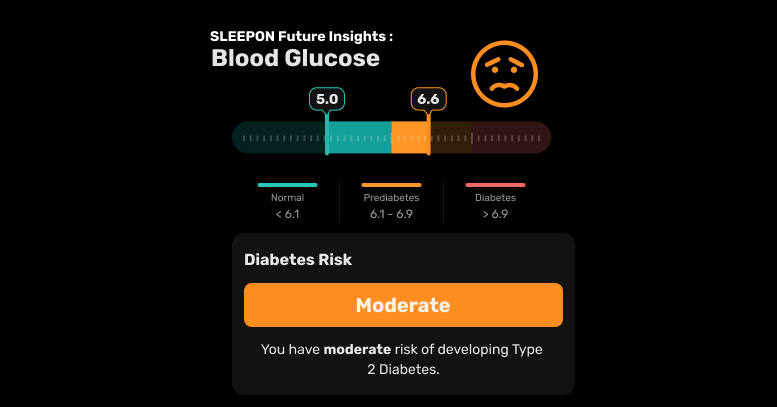
Good news, the SLEEPON app 3.0 is currently under intense development. We are planning to overhaul our app and introduce new features. For instance, the development of the blood sugar function, which has been brainstormed by our team, is now on the agenda. We believe that in the near future, the new blood sugar feature will be ready to meet everyone.
What is Blood Glucose?
Blood glucose, also known as blood sugar concentration, refers to the level of glucose in the bloodstream. Glucose serves as the primary source of energy for the body and mainly comes from carbohydrates in food, such as sugars and starches.
Blood glucose is one of the important physiological indicators in the human body. It can be used to screen, diagnose, and monitor various disorders of glucose metabolism, such as diabetes and hypoglycemia. Maintaining normal blood glucose levels is crucial for sustaining normal bodily functions and serves as a key indicator of glucose metabolism health.
Normal Values
The normal levels of blood glucose are closely related to the timing of meals and can be categorized into fasting blood glucose and postprandial blood glucose.
The normal ranges of fasting blood glucose and postprandial blood glucose may vary slightly depending on different medical standards and regions, but generally fall within the ranges mentioned. Below are the generally accepted normal ranges of blood glucose:
- Fasting blood glucose: 4.0 to 5.6 millimoles per liter (mmol/L) is the generally accepted normal range.
- 1-hour postprandial blood glucose: 6.7 to 10.0 mmol/L is the generally accepted normal range.
- 2-hour postprandial blood glucose: Less than 7.8 mmol/L is the generally accepted normal range.
It’s important to note that these normal ranges are provided as general guidelines. Actual ranges may vary due to individual differences, medical standards, and testing methods. For precise blood glucose monitoring results and diagnosis, please consult healthcare professionals.
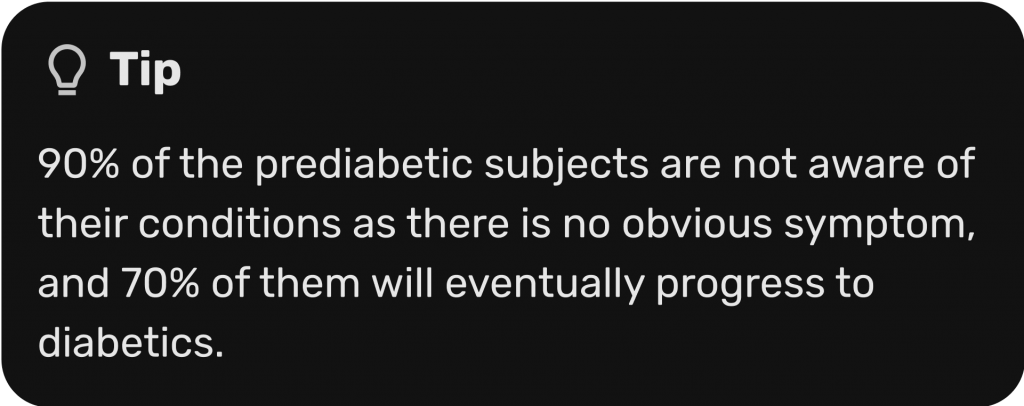
Standards for Different Age Groups:
Children and Adolescents (under 18 years old):
- Fasting blood glucose should be between 4.4 and 6.1 mmol/L.
- 2-hour postprandial blood glucose should be between 5.0 and 8.3 mmol/L.
Adults (18 to 65 years old):
- Fasting blood glucose should be between 4.4 and 6.1 mmol/L.
- 2-hour postprandial blood glucose should be between 5.0 and 8.3 mmol/L.
Elderly (65 years and older):
- Fasting blood glucose should be less than 7.8 mmol/L.
- 2-hour postprandial blood glucose should be less than 11.1 mmol/L.
For elderly individuals without severe cardiovascular diseases, fasting blood glucose should be controlled between 6.1 and 7.0 mmol/L, and postprandial blood glucose should be between 8.0 and 10.0 mmol/L.
Pregnant Women:
- Fasting whole blood glucose should be between 3.1 and 5.1 mmol/L.
- 1-hour postprandial blood glucose should be below 10 mmol/L.
- 2-hour postprandial blood glucose should be below 8.5 mmol/L.
It should be clarified that values outside the normal range indicate abnormality, but abnormal indicators do not necessarily mean the presence of diabetes or related disorders. A fasting blood glucose level above 6.1 mmol/L but not exceeding 7 mmol/L indicates a state of hyperglycemia, which can be reversed through appropriate physical exercise, dietary adjustments, and improved sleep quality to prevent progression to clinical diabetes.
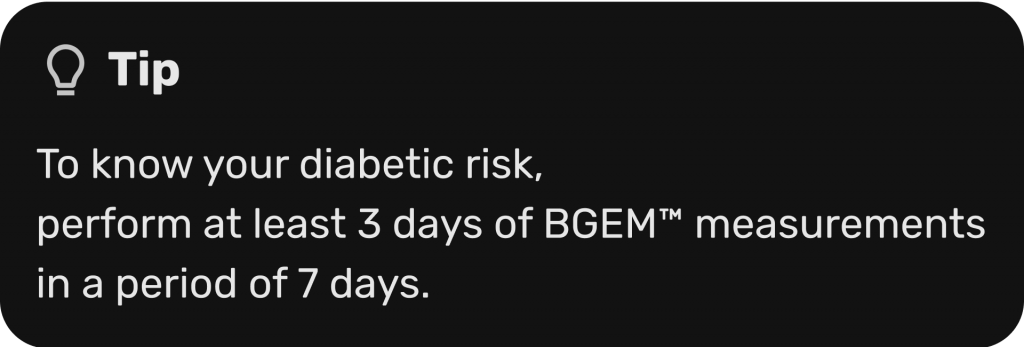
Elevated Indicators
High blood glucose levels may result from decreased ability to process glucose in the bloodstream or may be influenced by medications and physiological factors. Persistent high blood glucose levels may indicate impaired glucose metabolism, including impaired fasting glucose, decreased glucose tolerance, and diabetes.
Pathological Factors:
Insulin is the main hormone that lowers blood glucose levels. Factors such as decreased pancreatic function, insufficient insulin secretion, or decreased sensitivity to insulin may lead to high blood glucose levels. Endocrine disorders, dehydration, increased intracranial pressure, and other factors may also cause disturbances in blood glucose regulation.
Medication Factors:
Medications such as glucocorticoids, thiazide diuretics, oral contraceptives, and others can affect blood glucose levels. These medications may promote glucose synthesis or affect insulin secretion, leading to elevated blood glucose levels.
Physiological Factors:
Excessive intake of high-sugar foods, intense exercise, and excessive stress may also cause high blood glucose levels, but this is generally a short-term mild increase.
The American Diabetes Association recommends that individuals aged 35 and above undergo diabetes screening every 3 years. For individuals with abnormal blood glucose levels, timely medical evaluation is necessary to assess the risk.
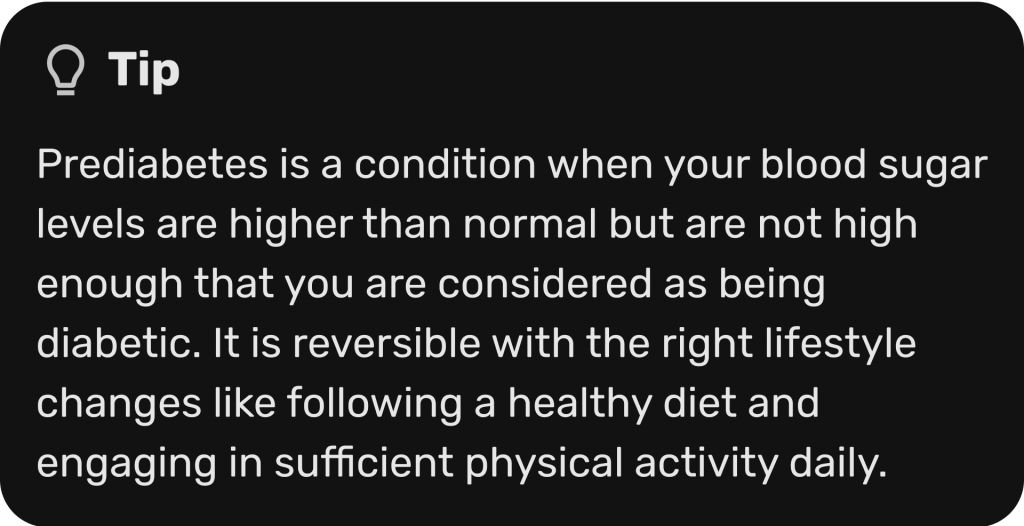
Decreased Indicators
Low blood glucose levels may result from factors such as abnormal insulin secretion, medications, and physiological factors. Repeated episodes of hypoglycemia may be associated with factors such as excessive insulin secretion and improper medication use.
Pathological Factors:
Diseases affecting the pancreas, liver, thyroid function, and other conditions may cause hypoglycemia. Excessive insulin secretion and hormonal abnormalities may also lead to low blood glucose levels.
Medication Factors:
Improper use of hypoglycemic drugs and insulin may result in hypoglycemia. Some non-hypoglycemic drugs may also cause low blood glucose levels.
Physiological Factors:
Intense exercise, excessive hunger, and other physiological factors may also cause hypoglycemia. Individuals with fasting blood glucose levels below 3.0 mmol/L and diabetic patients with blood glucose levels below 3.9 mmol/L should seek medical attention promptly.
Recent Posts :
Recent Posts :
- Black Friday Sleep Tech Mega Sale — Up to 58% OFF Smart Rings & Anti-Snoring Devices
- Finally, Sleep Naturally Again — The Mask-Free Way to Rest Better and Wake Up Refreshed
- How to Prepare Your Body Before Surgery for Better Recovery and Long-Term Success
- Stop Snoring Naturally: How MRD_M2 Helps Couples Sleep Better and Reconnect
- GO2SLEEP 3 Review: The Most Accurate Science-Backed Sleep Tracker Under $110
shop
Products
Company
Copyright © SLEEPON. All rights reserved.
SLEEPON keeps both Sleeponhealth and Sleepon.us due to the brand upgrading. We promise to provide the same products and service in both sites.





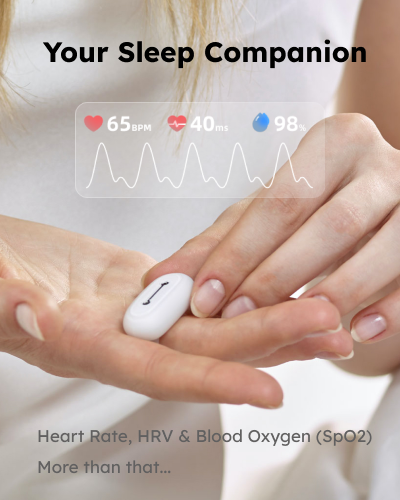





Leave a Reply